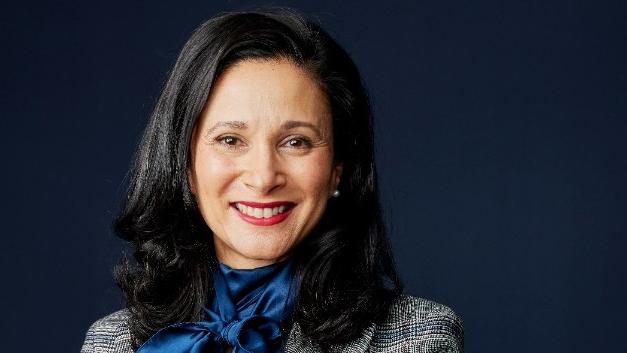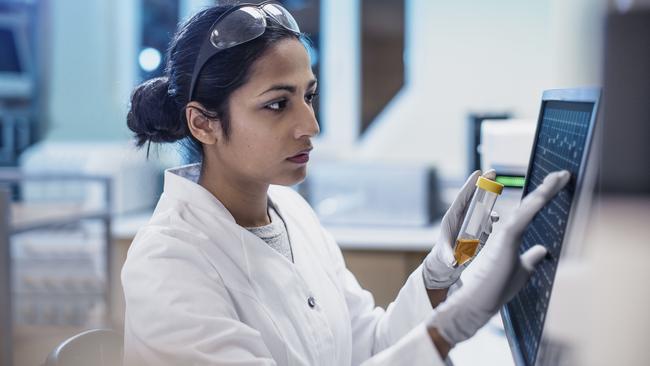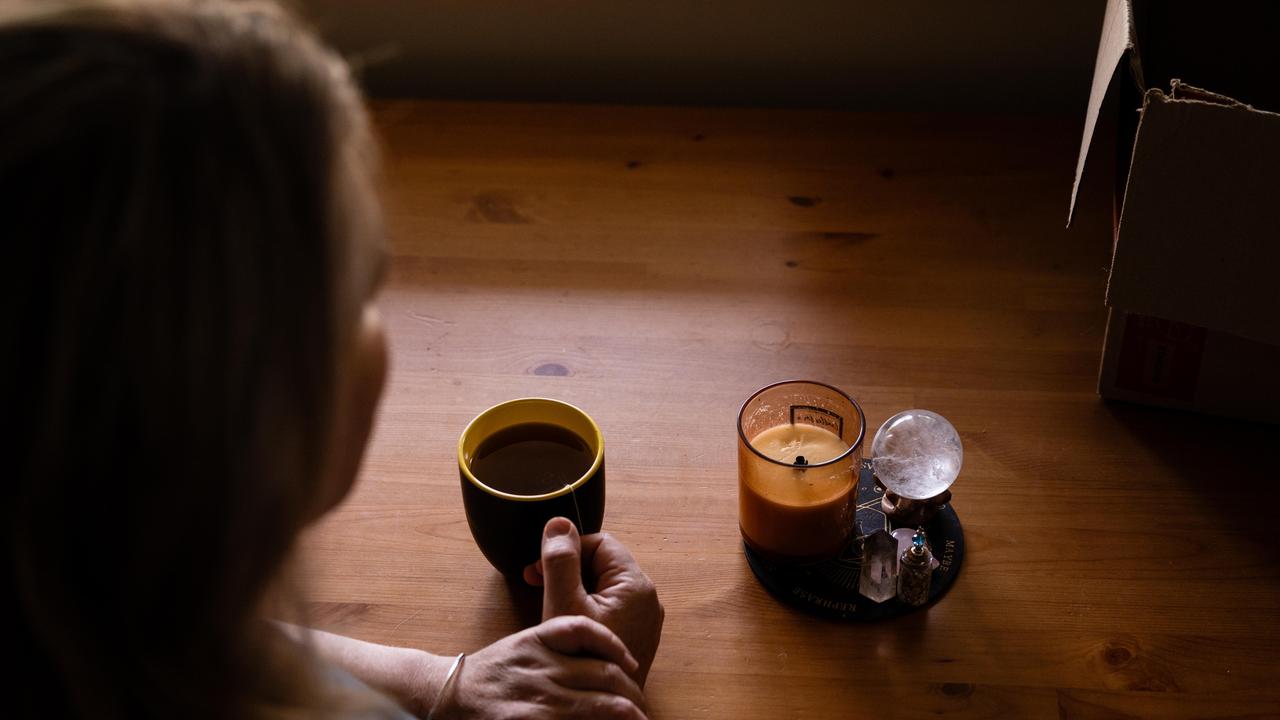National Breast Cancer Foundation makes bold investment in breast cancer research
One of the biggest investments in breast cancer research in Australia will form part of a bold plan to eradicate deaths from the disease. See how.
Victoria
Don't miss out on the headlines from Victoria. Followed categories will be added to My News.
In one of the biggest investments in breast cancer research in Australia, the National Breast Cancer Foundation (NBCF) will today announce it will deliver up to $125m over the next five years to achieve its goal of zero deaths from the disease.
Researchers say the scope and boldness of the investment is “a game changer”.
Breast cancer is the most commonly diagnosed cancer of women in Australia, claiming around 3200 lives every year.
CEO of the National Breast Cancer Foundation (NBCF) Cleola Anderiesz says this investment is inspired by how fast the world’s leading researchers focused on the Covid-19 vaccine development to show how quickly lifesaving outcomes could be achieved.
“We’re looking to bring this collective focus to breast cancer targeting the four areas that we know will save lives,” Associate Professor Anderiesz said.

They are: preventing breast cancer through precision medicine, early detection, preventing progression and recurrence, and improving treatment of hard-to-treat and metastatic breast cancer.
Professor Anderiesz says the release of the NBCF’s Pink Horizon Research Strategy on Thursday will revolutionise the treatment of breast cancer, adding that while the not-for-profit had made a significant impact on breast cancer research since its inception 29 years ago, there was still work to be done.
“Breast cancer diagnoses continue to rise and over 20,000 people in Australia will be diagnosed with a new breast cancer each year,” she said. “We want to ensure that a diagnosis of breast cancer doesn’t lead to death.”
Professor Sarah-Jane Dawson is a clinician-scientist at the Peter MacCallum Cancer Centre and Centre for Cancer Research at the University of Melbourne.
Her work on a liquid biopsy test for breast cancer is one of more than 660 research projects funded by the NBCF over almost three decades. In that time it has invested more than $216 million in research Australia-wide.
The liquid biopsy test detects small fragments of DNA shed from the cancer into patient’s blood stream and may one day lead to early diagnosis of breast cancer.

“The test has a lot of scope to improve outcomes for patients with breast cancer,” Professor Dawson said.
She says the NBCF’s goal of zero deaths from breast cancer is achievable, and the only way is through research.
“That is what is so exciting about the Pink Horizon Research Strategy,” Professor Dawson says. “The scale of research investment that the NBCF is putting forward to focus on these really challenging areas where we are still not doing well enough is game changing and going to be very transformative.
“For the first time, we have funding that is matched to the complexity of the research. The boldness and scale of the investment is not something we have seen before.”
Associate Professor Anderiesz said investment in research will be a collaborative approach that will aim to bring multidisciplinary researchers from different institutions and at different career stages together to address the most critical questions in breast cancer.
The strategy includes accelerator grants of up to $25m over five years, believed to be a first for Australian breast cancer researchers.
There will also be grants to support projects that will help build Australia’s breast cancer research pipeline and funding that will focus on Pink Sky Grants to support high risk, high reward research projects to help revolutionise approaches to combat breast cancer.
Melbourne mum of three Sarah Russell says the announcement gives her a new sense of hope.
She lost her mother and stepmother to breast cancer and was diagnosed with triple negative breast cancer herself in 2018. She was 29.
“To me it means better outcomes for families like mine,” Mrs Russell said in a statement. “Precision prevention and early detection is instrumental in changing how we detect and treat breast cancer. It gives us a new sense of hope, especially those without a genetic link.”
At a glance:
• Approximately 57 Australians are diagnosed with breast cancer every day
• 1 in 7 women are diagnosed with breast cancer, three will be young women
• About 1 in 500 men are diagnosed in their lifetime
• Every week a woman under the age of 40 will die from breast cancer in Australia
—source: National Breast Cancer Foundation





